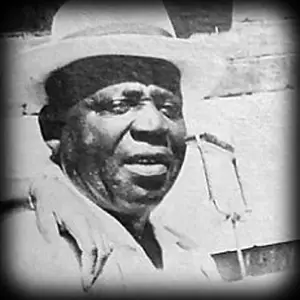J D SHORT
 J.D. Short is in nobody’s Hall of Fame, indeed his name is almost forgotten today, but he was a Blues player of exceptional quality. His clear, bright voice had a distinctive vibrato, but he could wail like a demon, moan like a dying man and suddenly switch to a fluid falsetto. He was an incredibly versatile musician too, playing piano, guitar, harp, sax, clarinet and drums, and J.D. also spent many years as a member of one of St. Louis earliest Blues bands. Although he didn’t make many records, every one was a fine example of the of country Blues in its transition to the city.
J.D. Short is in nobody’s Hall of Fame, indeed his name is almost forgotten today, but he was a Blues player of exceptional quality. His clear, bright voice had a distinctive vibrato, but he could wail like a demon, moan like a dying man and suddenly switch to a fluid falsetto. He was an incredibly versatile musician too, playing piano, guitar, harp, sax, clarinet and drums, and J.D. also spent many years as a member of one of St. Louis earliest Blues bands. Although he didn’t make many records, every one was a fine example of the of country Blues in its transition to the city.
Superbly emotional harp playing from an unsung hero;
Back in St. Louis, J.D. started playing with a band called The Neckbones, (not the modern garage/punks!) who continued to play in the city from the 30s to the 60s. Among the many musicians to pass through that band was J.D.’s cousin Big Joe Williams. After that flurry of activity in the early 30s, J.D.’s recording career did not begin again until he played guitar and harp for Big Joe on Bob Koester‘s seminal recordings in 1958. Sam Charters finally gave J.D. the chance to record some of his own songs for the Folkways label in July 1962, but sadly it was to be his swan-song, as he passed away in his adopted home-town of St. Louis a few months later.